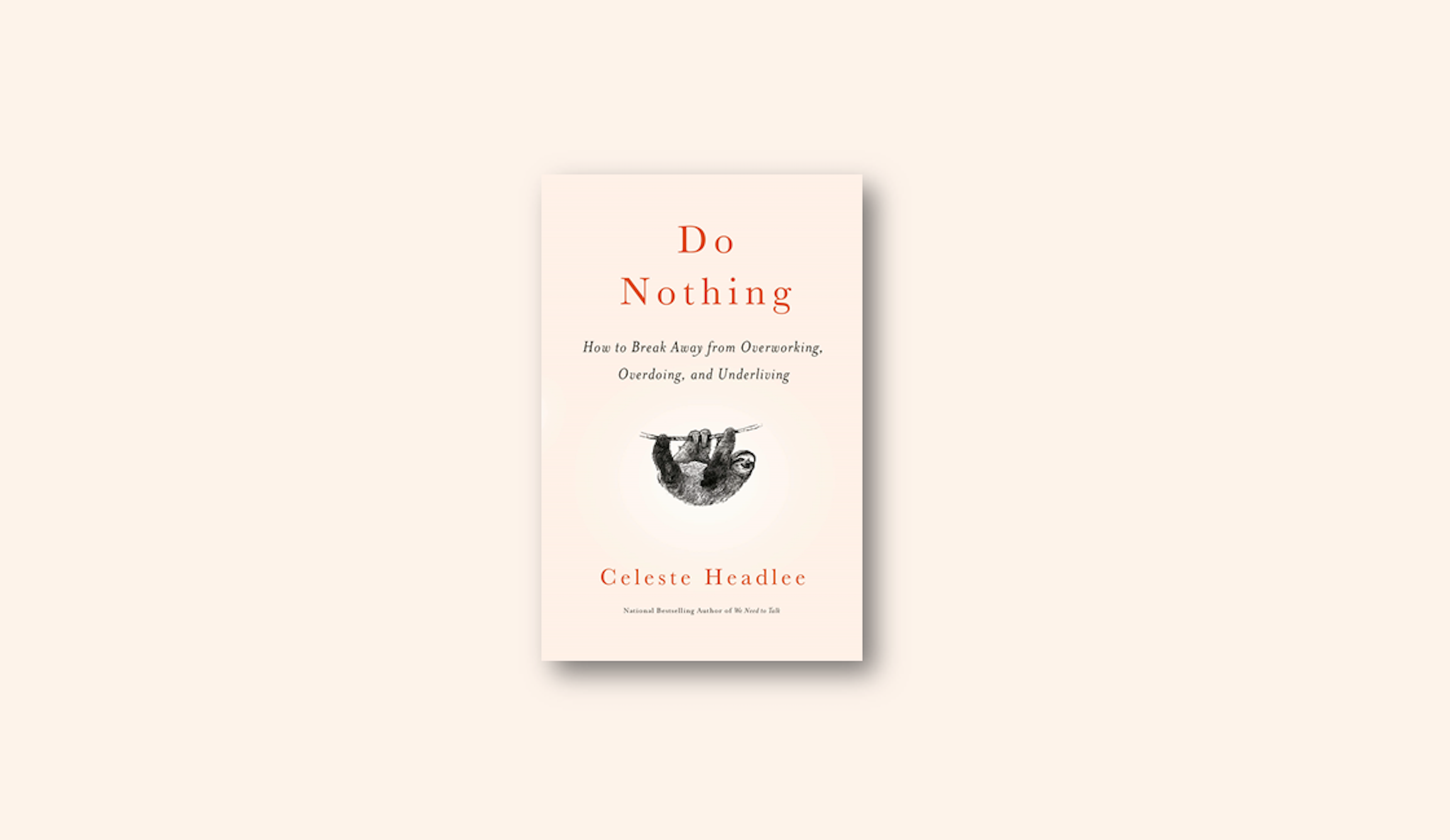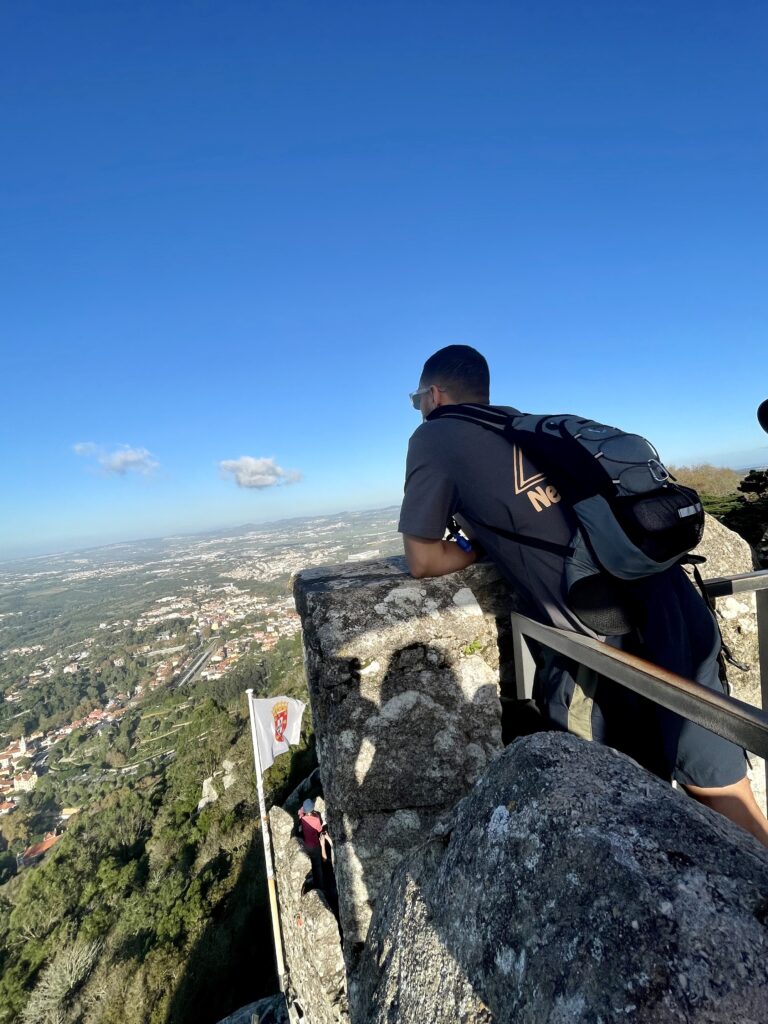“The whole point of this book is to encourage you to ask more questions about efficiency”
Do Nothing (Headley, 2020, p. 223)
Indeed, it is.
Time and again, Celeste Headlee prompts readers to second-guess what they’ve been told by seemingly everyone about productivity and how to most efficiently use their time. Through an incredible amount of research, she shows readers that what people consider to be productive has drastically changed from the beginning of human kind.
For anyone already questioning whether their job is really that important or wondering if this is all there is to life, the start of the book will immediately capture you, as it sure did me.
Beginnings
In the Introduction, Celeste provides readers with a lot of background information into how she started thinking and writing about the necessity of “doing nothing”. She shares a personal anecdote about the word driven, and how it’s mostly been perceived as a compliment, both on her end and for whomever is describing her in that way. She speaks about her childhood and the days she used to make “long to-do lists in [her] daily planner and made sure [she] finished more tasks than [she] added every day” (Headlee, 2020, p. X).
Though a lot of us might not resonate with this attitude in our childhood, I’m certain many of us do as working adults.
Reading this, though, I thought about how my relationship to the word has changed significantly throughout the last few months.
Driven was a word I always used to describe myself, particularly in the workplace. Yet recently, the word has taken on a different meaning for me.
Driven for what? For whom? Who benefits from me being “driven”, me or the corporation?
These reflections have been spurred on by books like Headlee’s, but also other books such as The Pathless Path by Paul Millerd, Reclaiming Control by Amy McMillen, along with the Zero to Travel podcast hosted by Jason Moore. Through these outlets, I’ve changed my perspective and have started to reflect on what exactly I want out of life and whether working in my current position is getting me there.
Spoiler alert: it is absolutely not…
“Far too many of us have been lured into the cult of efficiency. We are driven, but we long ago lost sight of what we were driving toward. We judge our days based on how efficient they are, not how fulfilling”
Do Nothing (Headlee, 2020, p. xii)
Leisure
Another notable word that’s mentioned in the beginning of the book is leisure. Headlee defines it as “slowing down and milking life for all it is worth” (Headlee, 2020, p. xix).
I cannot emphasize just how much I loved this definition.
But, there was a part of me that was sad because I realized just how much I don’t do this. I thought about reading, for instance: something I love so much and enjoy greatly, but will still turn into a competition with myself to see if I can read more books than the last year. I’ll then end up speeding through books and not really soaking in just how great the writing or story is.
“There is more to life than increasing its speed”
— Mahatma Ghandi
All of which brings me to the idea of slowness, in general. Early on in the book she talks about how she used to rush through airports, supermarkets, and basically everywhere, even if her toddler was with her. Then she made a decision one day to slow down and actually enjoy the journey through the airport. By doing this, she noticed an amazing art exhibit that she would have failed to appreciate if she had not slowed down.
Once she noticed how that “one small decision sic brought [her] a half hour of enjoyment” (Headlee, 2020, p. 12), she continued to make these small decisions which would compound her slowness, and in turn, her happiness.
I resonated with this so much, and can speak to how much of a difference it makes.

Earlier this week I was on my way to visit my mom in Houston, Texas, and did exactly that.
I ended up looking at this beautiful piece of art by a Brazilian artist, Carybé, and read about his intent for creating it and why it was in an airport. In a nutshell, the paintings were about traveling through the Americas and appreciating the diversity of all its people. I felt so grateful that I could learn about this artist and had the opportunity to look at his art, all for free and in an airport! This ultimately brought me so much joy and made the biggest difference when I had to wait on a long security line right after.
In what ways can you slow down today?
The Illusion of Busyness
Have you ever been at work and heard your colleagues complain, but with a weird smile/smirk on their face about how busy they are? Or ask your friends how they’re doing and get the “SO busy!” response? Are you guilty of this? I know I certainly am.
This type of odd bragging has become so normal, at least in the United States. Time and again, I hear people talk about how they’re so busy, and have this meeting and that meeting, and have this to do and can’t do this because they have that to do.
Though this wasn’t something I recognized initially, and would only come to realize it just a few months ago, reading what Headlee had to say about it made me understand why it is such a common phenomenon. She writes:
“Bragging about how busy you are gives the impression that you are valuable and in high demand…Instead of wearing expensive products and demonstrating that one’s clothing has high value, a person who is very busy is implicitly bragging about their intrinsic worth, their own intelligence. They might talk about all the appointments and tasks on their calendar or they may respond to most invitations by saying, “I’ll have to check my schedule.” When you ask how they are, instead of saying, “Fine”, they might say, “Busy!”
(Headlee, 2020, p. 88)
When I first recognized this was occurring at work, it irritated to me no end.
I thought, big deal, good for you! Now, I kind of just laugh, and in some ways feel bad for the person. They’re stuck in this culture (read: rat race) where the last priority is true, pure joy, and that’s tragic.
“Imagine if I had always invested my extra hours in myself and my creativity rather than in producing one more story for my company”
— Do nothing (Headlee, 2020, p. 200)
Instead of attempting to fill my calendar to show how busy I was, like I used to, I now relish the opportunity to have (multiple) breaks throughout my day.
Rather than try to find some work to fill in these times, most of the time I’ll pick up a book or check the blog, or something else that makes me happy. It’s not always an easy thing to do, I will admit. But once your mind shifts to thinking in this way, it’s pretty difficult to go back to the illusion of busyness.
Being vs. Doing
“Stop becoming and just be for a moment”
— Do Nothing (Headlee, 2020, p. 214)
Another insightful point in the book was the difference between being and doing. Headlee writes how we are so obsessed with doing and rarely stop to just be, whatever that looks like.
She writes how we always need to be working toward something: even our spare time is used as an opportunity to produce something and to get 1% better at something.
I can totally relate to this!
“We now live in a culture in which we are not happy being and only satisfied when we’re doing.”
— Do Nothing (Headlee, 2020, p. 121)
Though like with many of the other concepts she writes about, it’s hard. It’s difficult not trying to improve yourself when there’s so many tools and resources out there to do so. But if we want to be happier individuals, like Celeste is trying to help us become, we need to find comfort in just being from time to time: whether that’s having a conversation with a stranger without the intent of networking or going for a walk (without counting your steps on a fitness watch) just because it’s Tuesday afternoon and you feel like it.
Time Perception
A good portion of what Headlee writes about, really, comes down to time-perception. She describes the importance of being aware of how you spend your time and the difference it will make in your relationship with time in general.
She proceeds to state how “people who have high time perception scores, who are very aware of their schedules, actually tend to set aside more time for leisure. These people allow for time to contemplate and reflect, and that gives them the sense that they have more time.” (Headlee, 2020, p. 179)
I smiled when reading this because I’ve experienced this exact feeling throughout the last few months.
I now feel like I have so much more time to just think and create, but it’s only since I started assessing how I’m actually spending my time. Instead of mindlessly scrolling through the news feed, like I used to, I now use that time to do something that allows me to engage more deeply with the world around me.
In this way, the book is about productivity.
But it’s not for people to constantly be working on the absolute best version of themselves, whatever that means. Rather, it’s to feel good about how you spend your time.
For most of us, we don’t look back at the last hour we spent on social media and smile; yet we are much more likely to be grateful for an hour we spend meditating and journaling, not because it’s a “life hack”, but simply because it made us feel naturally good in that moment.
A Note on Headlee’s Research
This book is jam-packed with solid research! Going back to ancient times to the Enlightenment period and all the way up to our contemporary moment, Headlee illustrates how we have internalized the values of the times, whether they’re from 200 or 500 years ago.
Though, personally, I think at times Headlee can get a bit bogged down in the research, it is important. Where I think she shines the most is the nuggets of wisdom, and personal experience, wedged in between her rigorous research. It’s not often writers can balance all of those things at once. Nonetheless, for anyone who doesn’t care for much research, a summarized version of the book might suit you better.
No shade, Celeste!
Indeed, no shade at all: the biggest reason being that she lays her story out there.
She has no issue telling the reader that she’s not the person who’s figured it all out and you should listen to her because of it. She talks about how she would have never listened to her own advice years ago as a single mom struggling to make ends meet. She also says how she’s not “someone with limitless amounts of free time admonishing you to go out and smell the roses” (Headlee, 2020, p. 7)
For these very reasons, I sought to heed her advice even more.
What she had to say resonated with me so much because it was real. She’s experienced all this—and continues to struggle with it—and wants you to know there are ways to make things better, to have a life that’s filled with more nothing, and more happiness.
Till’ Next Time Travel Friends!








One response to “Do Nothing: How to Break Away from OverWorking, Overdoing, and Underachieving by Celeste Headlee”
[…] been reading a lot lately about work: from The Pathless Path to Do Nothing, the opinions have been insightful and […]